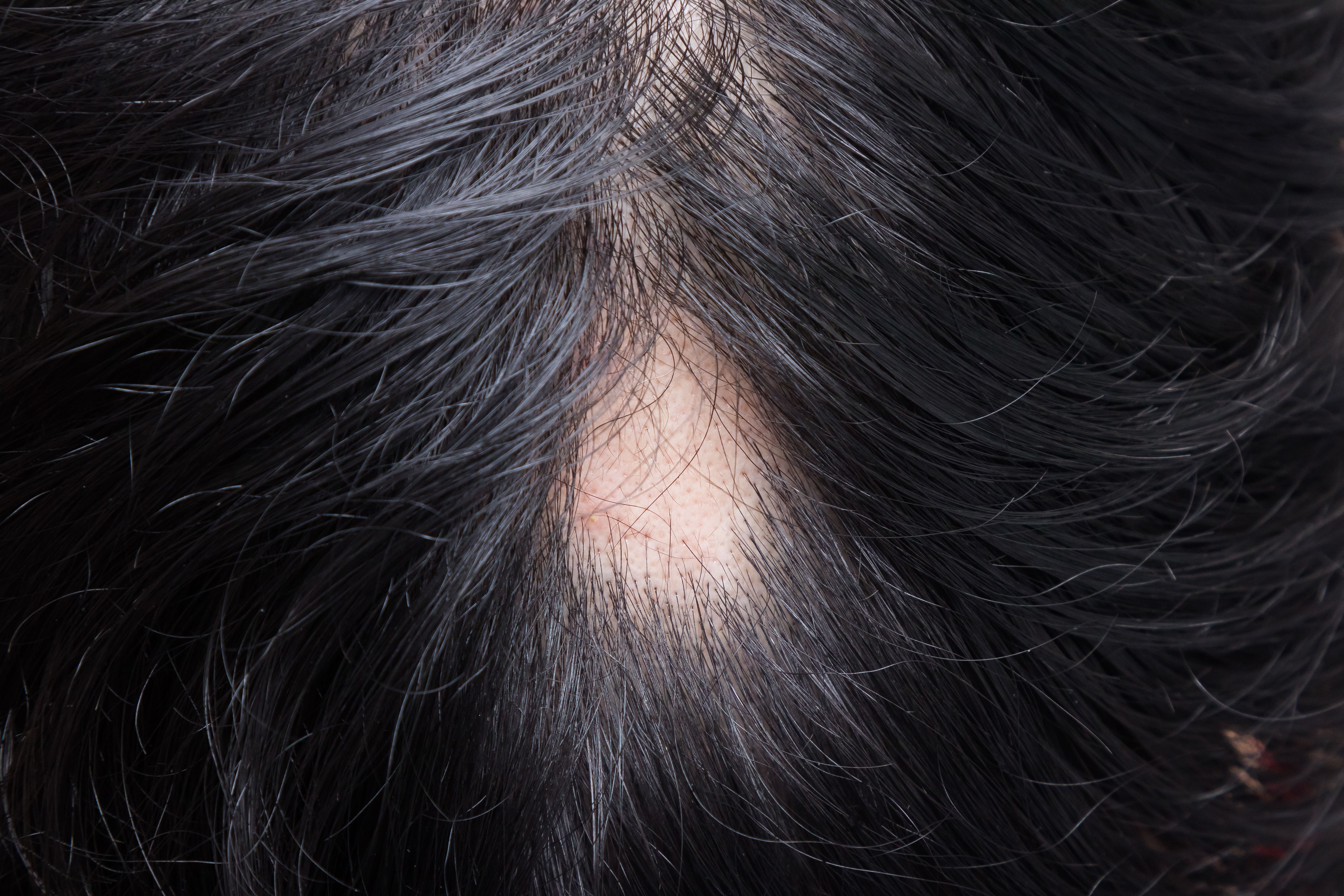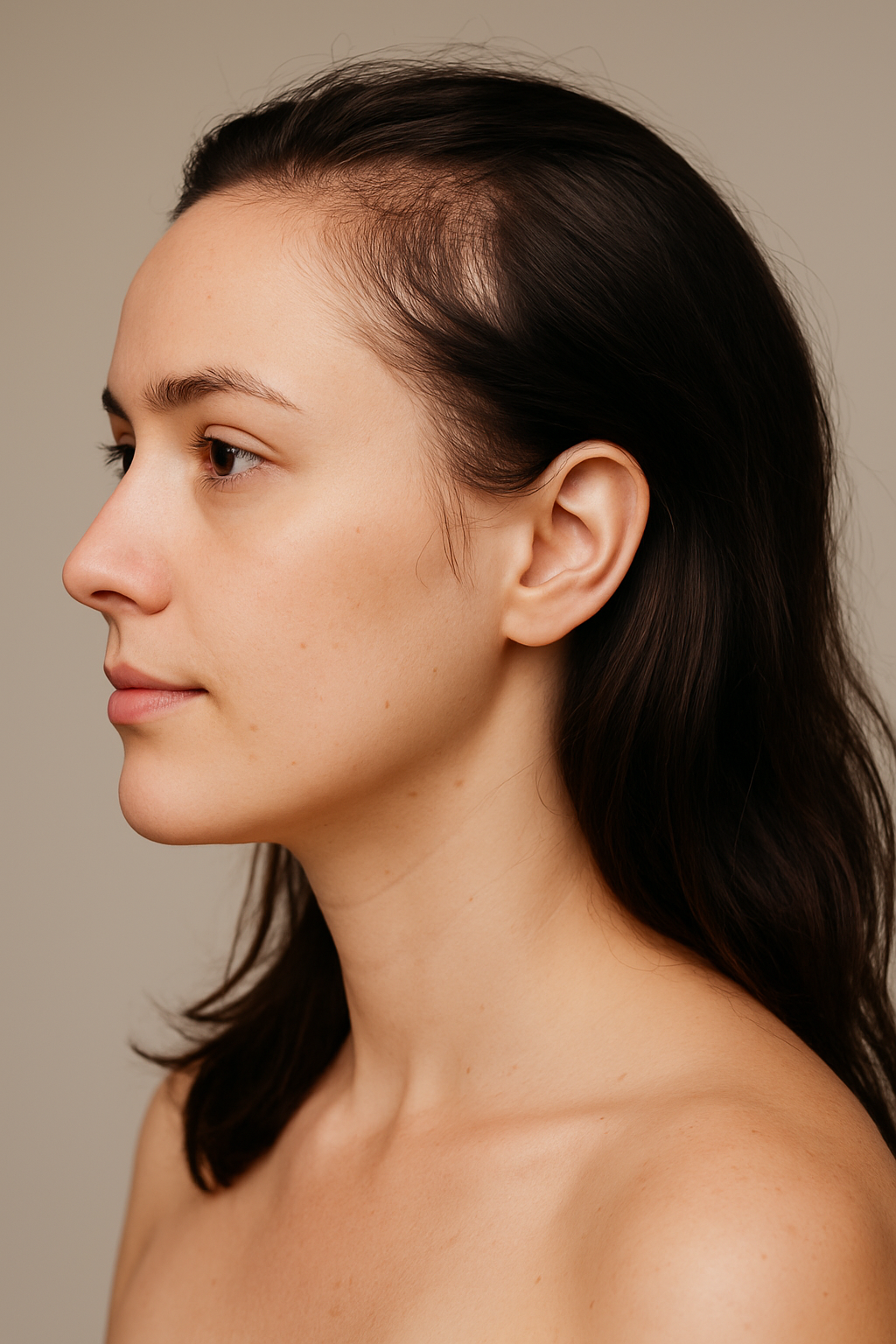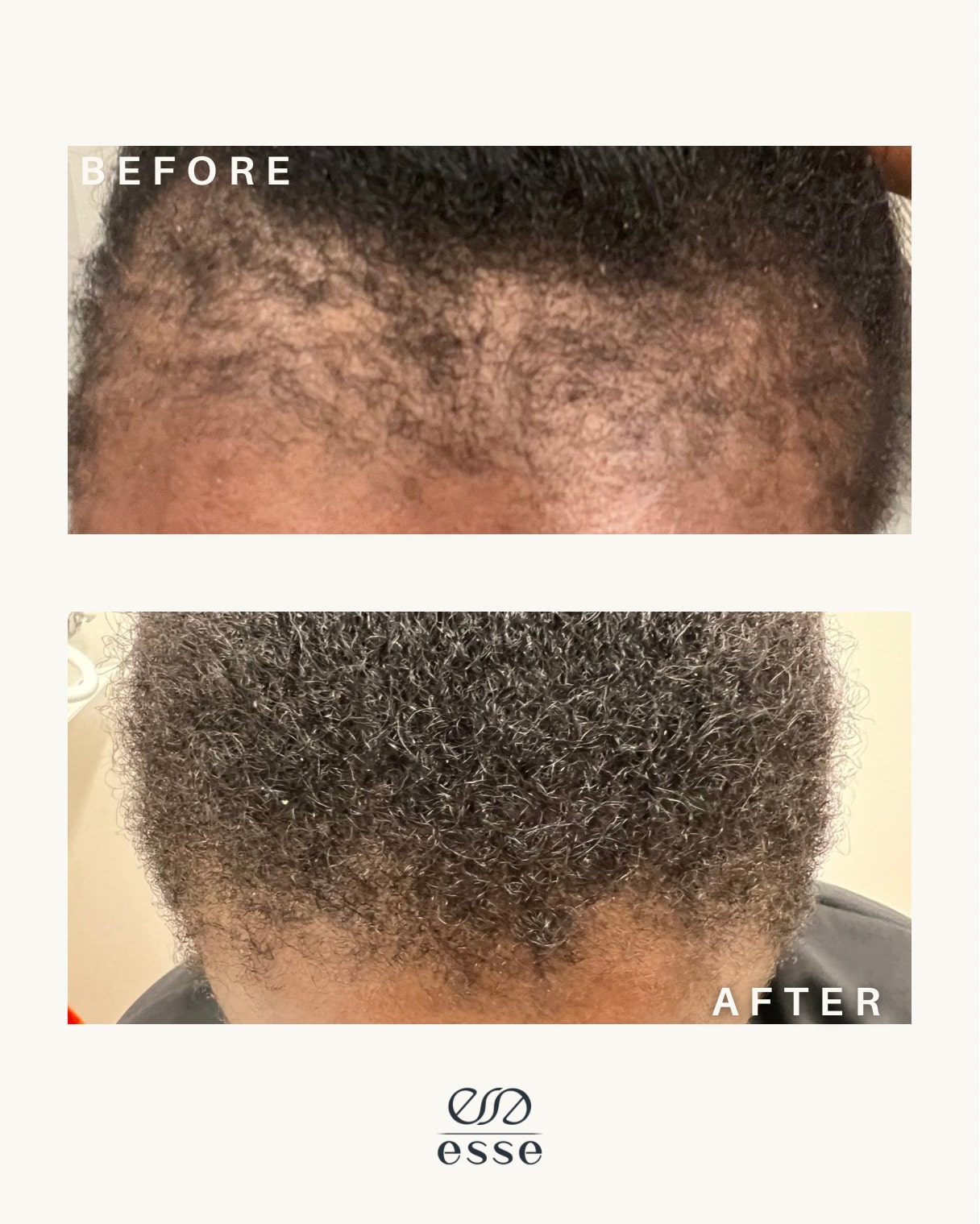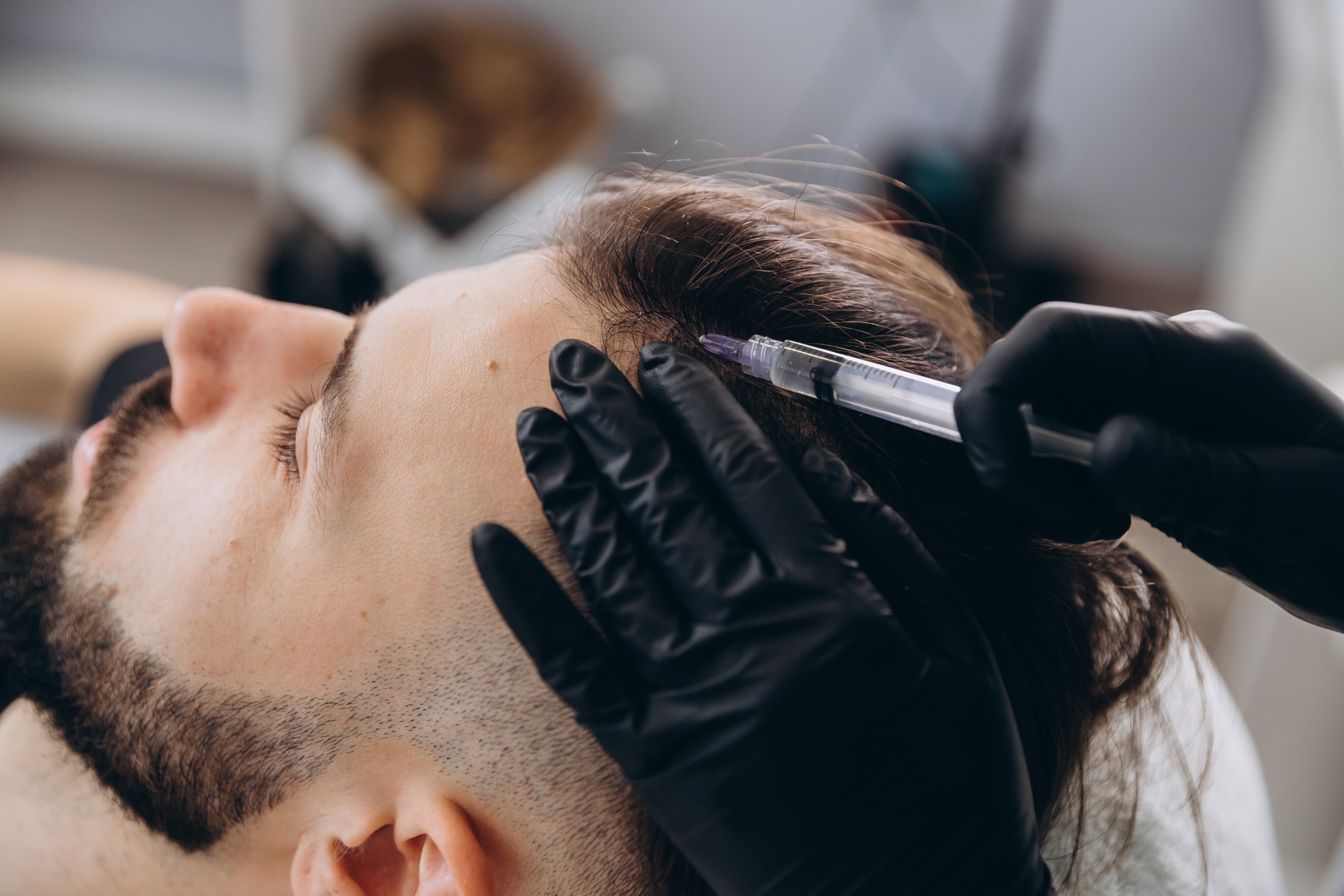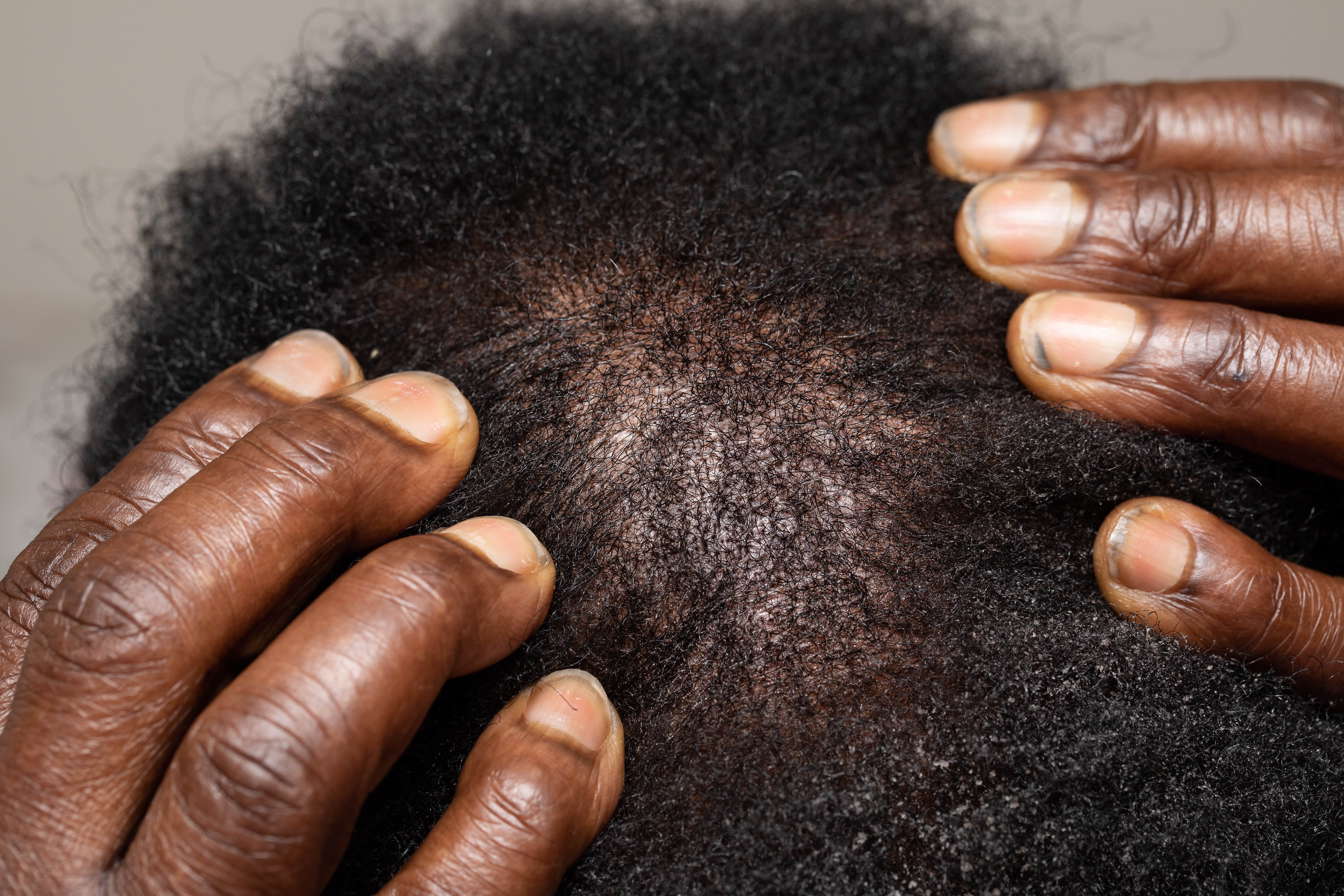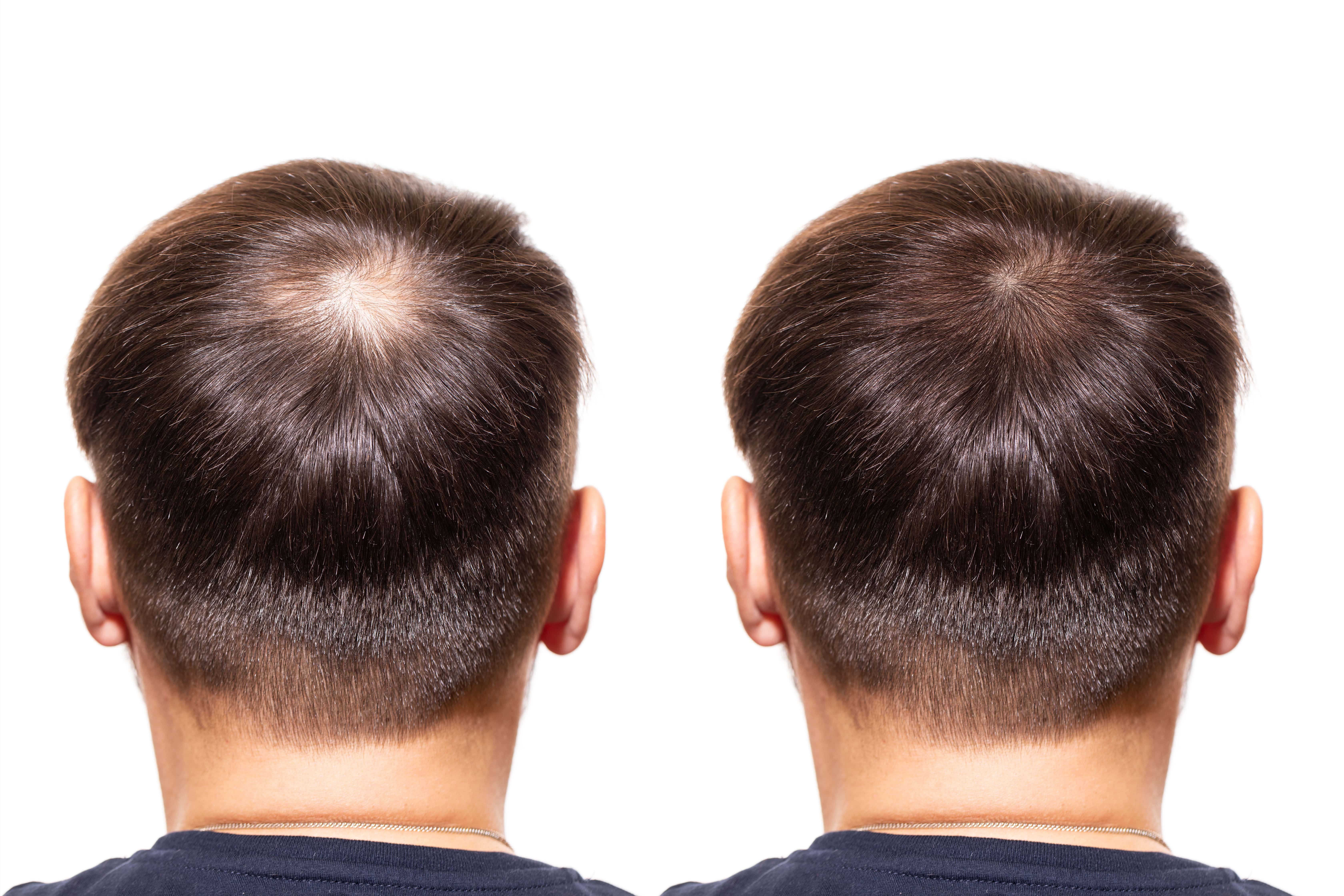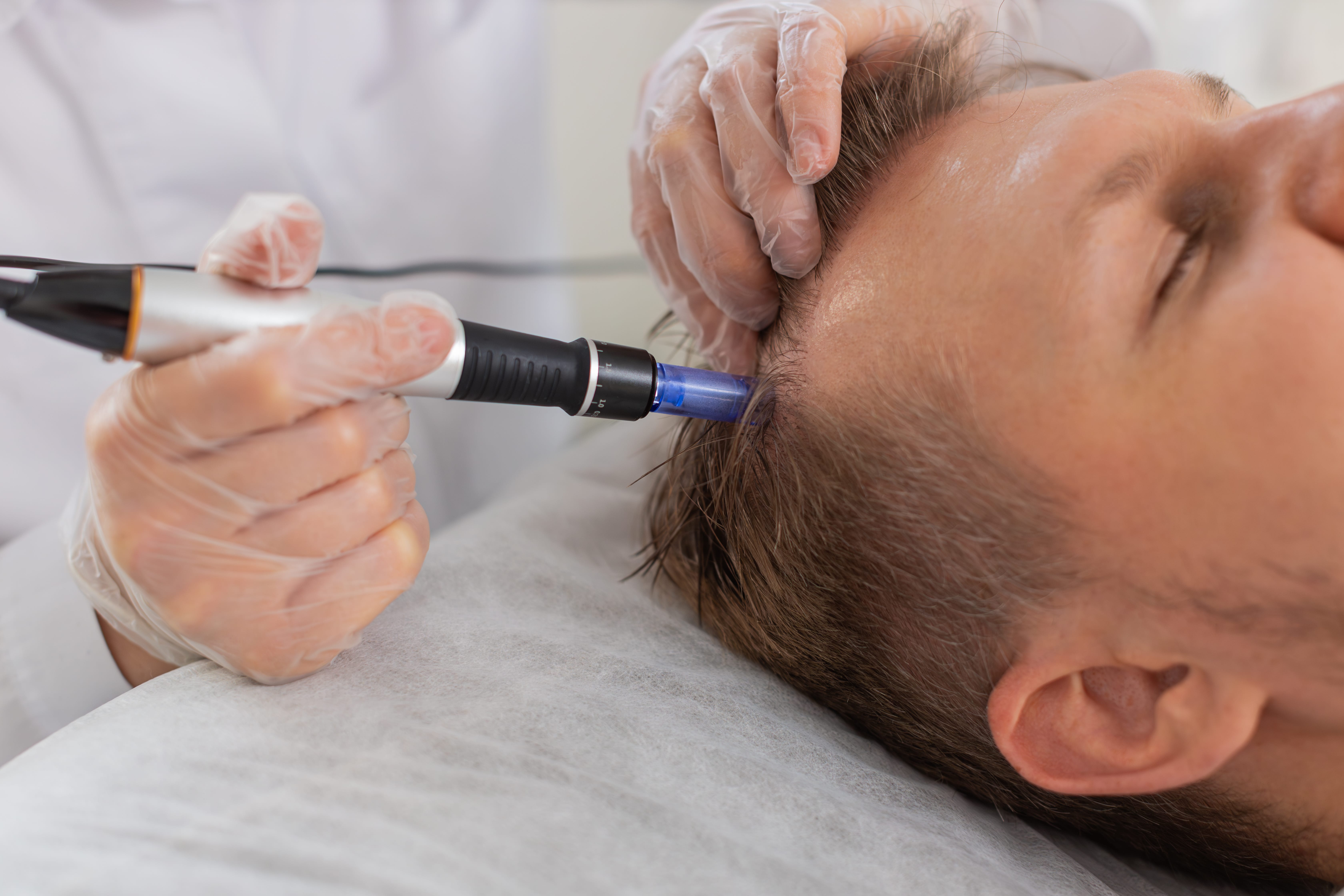Introduction
Alopecia areata is an autoimmune condition where the immune system mistakenly attacks hair follicles, leading to sudden hair loss. It can affect the scalp, face, or other parts of the body. Hair often falls out in smooth, round patches, and in some cases, regrowth may occur on its own. However, for many people, treatment is needed to encourage hair growth and help prevent further loss.
At Esse Dermatology in Charlotte, NC, we diagnose and treat alopecia areata using a personalized approach. All care is provided by or overseen by a board-certified dermatologist who specializes in both medical and procedural hair loss therapies.
Causes and Risk Factors
While the exact cause is not fully understood, alopecia areata is believed to be triggered by a combination of genetic, immune, and environmental factors. You may be at higher risk if you have:
- A family history of alopecia areata or other autoimmune diseases
- Conditions such as thyroid disease, vitiligo, or type 1 diabetes
- High levels of physical or emotional stress
How It Looks and Feels
Alopecia areata can present in different ways, including:
- Smooth, round bald patches on the scalp or beard area
- Sudden shedding over a short period of time
- “Exclamation point” hairs (short, broken hairs at the edge of patches)
- Nail changes such as ridges or pitting
Some people notice tingling, itching, or tenderness in the affected area before the hair falls out.
Emotional Impact
Hair loss can have a significant effect on self-esteem and emotional well-being. At Esse Dermatology, we recognize that treating alopecia areata is not just about restoring hair but also supporting your confidence and overall quality of life.
Treatment Options at Esse Dermatology
Because alopecia areata is unpredictable and varies from person to person, we create a tailored treatment plan that may include:
- Intralesional corticosteroid injections to calm inflammation at the follicle
- Topical medications such as corticosteroids or minoxidil
- Oral medications including JAK inhibitors for eligible patients
- Adjunctive therapies such as PRP or PRF for added stimulation
- Lifestyle and nutritional recommendations to support healthy hair growth
Early treatment often provides the best chance for regrowth.
What to Expect During Your Visit
Your dermatologist will:
- Review your medical history and hair loss pattern
- Perform a scalp examination, possibly using trichoscopy (magnified scalp imaging)
- Recommend any necessary blood tests to check for related autoimmune or hormonal conditions
- Discuss treatment options and create a plan that fits your needs and goals
Frequently Asked Questions
Will my hair grow back?
In many cases, hair will regrow, especially with early treatment. However, alopecia areata can recur, so ongoing monitoring may be needed.
Is alopecia areata contagious?
No. Alopecia areata is an autoimmune condition and cannot be spread from person to person.
How long will it take to see results?
Some patients notice regrowth within a few weeks to months after starting treatment, while others may require a longer course of therapy.
Can stress make it worse?
Stress is not the direct cause, but it can trigger or worsen flares in some people.
Schedule a Consultation
If you have noticed sudden hair loss or bald patches, early intervention can make a big difference. Call Esse Dermatology at 980-533-4844 or book online to schedule your consultation and get a treatment plan designed for your hair and scalp health.



